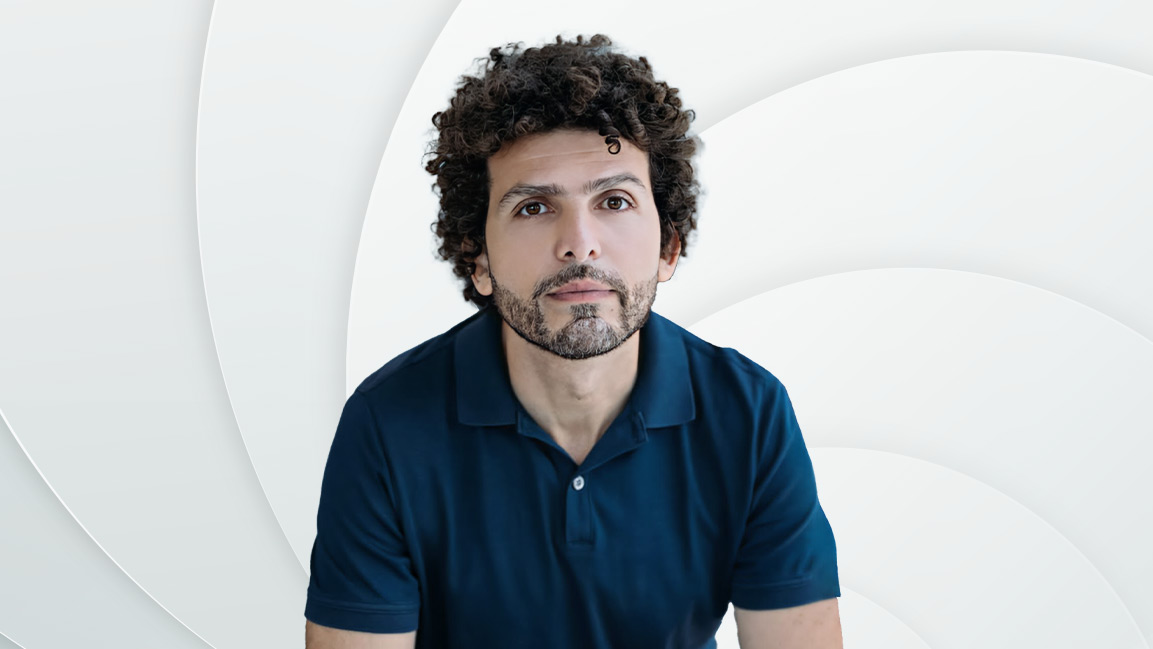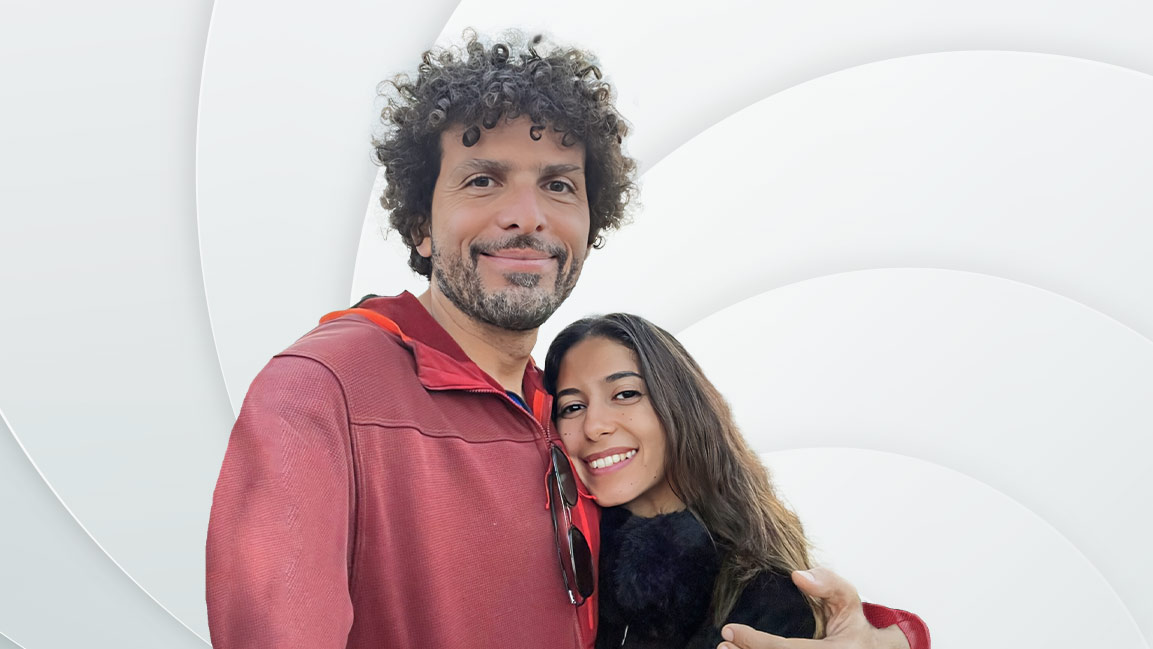- | 10:00 am
Podcasts in the Middle East are getting popular. Has Omar Samra found a niche?
Omar Samra, who hosts the relationship podcast Eh El-E’laqa with his wife Mint, says bringing in a nuanced Arab perspective was essential

“Approaching a podcast is similar to approaching a business concept,” says Omar Samra about the relationship podcast Eh El-E’laqa he hosts with his wife, Mint.
“There needs to be a strong purpose to drive it. The people involved also need to be completely aligned on that purpose,” he adds.
The Eh El-E’laqa podcast, launched by Womena, offers a glimpse into how the couple navigates through key relationship matters such as boundaries, finances, and intimacy.
Since Open Source – a politics and culture discussion show hosted by the journalist Christopher Lydon – debuted in 2003 and is widely considered the first-ever podcast, the art form has become a constant companion, fostering social relationships, exposing us to candid conversations and sometimes unearthing thrilling stories.
If you are one of the million people in the Middle East who listen to podcasts, you’d know they have loudly made their presence felt here.
“We want people to understand that our stories are not just our own—they belong to everyone. Even when sharing an experience that differs from others, there’s something to be learned, creating a potential dialogue and space for conversation,” says Omar.
Relationships come in all shapes and sizes, and so do relationship podcasts. That said, sharing stories can be tricky to sustain, especially when delving into complex topics.
For that, Omar says comprehensive planning was involved. Womena played a “significant role” in structuring the conversation of each episode, including the progression of topics over time.
BRINGING ARAB PERSPECTIVE
Omar, an adventurer, speaker, entrepreneur, and the first Egyptian to conquer Mount Everest and the seven summits, says the conversation about relationships, especially bringing a perspective from the Arab world, was lacking in a conscious and nuanced manner in the region. “We saw the potential to add value to the space by sharing our experiences.”
He acknowledges that they don’t have all the answers and aren’t necessarily experts, despite Mint’s academic experience, but the idea of bringing their life experiences was to open an opportunity for dialogue and share vulnerable aspects of their lives.

“We also understood that discomfort is necessary for growth, and by putting ourselves out there, we aimed to create a space for dialogue and thought.”
But making oneself heard can be an uphill struggle in a crowded audio landscape – it is “quite competitive,” regardless of the format, Omar says.
However, podcasts pull in high engagement, especially with the longer format. “Unlike social media, where people often drop off midway, podcast listeners stay engaged from start to finish. It also gives us the freedom to dive deep into topics, something that’s challenging on the quick-scroll platforms.”
ADDING VISUAL FORMAT
Although podcasts need to be platform agnostic – the content has to be true to the core of what has made them so engaging, which is deeply personal and very authentic – focusing on podcasts as a visual format rather than an audio one is gaining traction.
Adding visual format to Eh El-E’laqa helped, Omar says. “Video is more work, but it adds that natural, cozy essence to our conversation —something you can’t quite capture with just audio. Our topic of relationships especially needed this natural setting to create an intimate experience.”
“The beauty of incorporating both audio and video lies in gaining the benefits of both without leaving anything on the table,” says Omar.
There is an evident trend in adding a visual component to podcasts since it allows creators on YouTube and social media platforms to bridge the gap between their existing large audiences and plan their move towards longer-form content, he adds.
“I’ve also experienced the beauty of an audio-only podcast, appreciating the purity and simplicity of spoken content, which easily resonates with anyone who cherishes the radio.”
Talking about reshaping pop culture, Omar says podcasts have the potential to make a substantial impact due to their emphasis on “genuine conversations.”
“This sets podcasts apart from social media or television, which often provides bite-sized content with limited room for in-depth exploration or sustained attention.”
Podcasts haven’t just ballooned audiences; they have helped change the content and tapped into something special necessary in today’s world—an elevated level of depth and nuance. Podcasts rely on intimacy, repetition, and familiarity instead of edginess, disruption, and discomfort.
“This aspect is crucial, providing a unique experience that goes beyond the limitations of other media forms,” says Omar.
“It can be considered as the 2.0 version of radio – a medium that has been present for a very long time, predating the advent of visual content.”








































